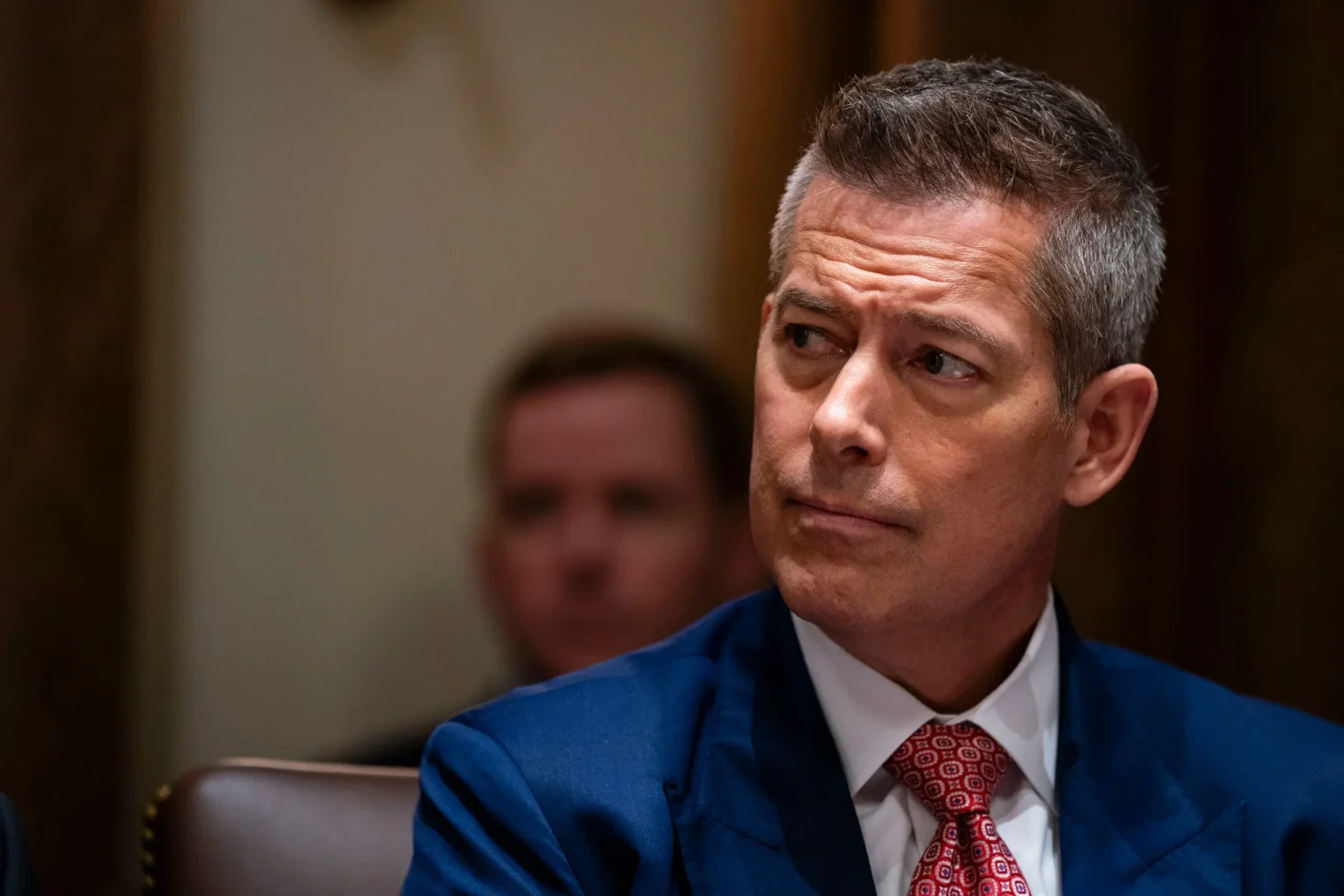Transportation Secretary Warns Chicago and Boston on Transit Safety
Federal Pressure Mounts Over Urban Transit Violence
In a bold warning issued on Friday, U.S. Transportation Secretary Sean Duffy put Chicago and Boston on notice that they risk losing federal support unless immediate action is taken to address safety concerns on their public transit systems. His stern message followed a series of violent incidents that have plagued both the Chicago Transit Authority (CTA) and Massachusetts Bay Transportation Authority (MBTA). The most alarming cases include a veteran CTA employee who was assaulted and thrown onto tracks after 27 years of service, an elderly woman violently shoved from an MBTA bus, and multiple passengers attacked by a man wielding his belt as a weapon. “President Trump cares about our great cities and the hardworking Americans who inhabit them,” Duffy stated, framing the issue as one of protecting ordinary citizens who depend on public transportation for their daily commutes.
Cities Given Two-Week Deadline for Comprehensive Safety Plans
The Transportation Secretary has not merely issued vague warnings—he’s demanded concrete action with tight deadlines. In formal letters to CTA Acting President Nora Leerhsen and MBTA General Manager Phillip Eng, Duffy established a 14-day timeline for both agencies to submit detailed written reports. These reports must outline specific steps already taken to reduce crime, combat fare evasion, and improve the overall cleanliness of transit systems. Additionally, the agencies must provide comprehensive information about their funding sources for the upcoming fiscal years 2025 and 2026, particularly highlighting any federal support they currently receive for safety and security initiatives. This approach represents a significant escalation in federal oversight of local transit operations, with Duffy making it clear that continued financial support will be contingent on demonstrable improvements.
Criminal Justice Policies Under Scrutiny
Beyond the immediate safety concerns on public transit, Duffy’s warning took aim at broader criminal justice policies in both cities. He specifically criticized cashless bail systems, which he characterized as allowing “deranged criminals to repeatedly terrorize public space.” This framing connects transit safety issues to wider debates about criminal justice reform, suggesting that lenient bail policies may be contributing to the violence observed on public transportation. The Transportation Department’s approach reflects a growing tension between federal priorities and local governance on issues of public safety and criminal justice. While some view these criticisms as necessary pressure to protect commuters, others may see them as federal overreach into matters traditionally left to local and state governments.
Boston Transit Officials Respond to Federal Pressure
Following the shocking incident involving an elderly woman being violently pushed from a bus, MBTA General Manager Phillip Eng responded by emphasizing that safety remains the agency’s highest priority. “Safety will always be at the forefront of everything we do, and I’m proud of the prompt response and investigation by the MBTA Transit Police that led to the arrest of this individual,” Eng stated on Thursday. He also highlighted the availability of the See Say app, which allows riders to anonymously report concerns at any time. This technology-based approach to safety reporting represents one of the ways transit agencies are attempting to address security challenges in real-time, empowering passengers to participate in maintaining safe transit environments. The effectiveness of such measures, however, may now face increased federal scrutiny as agencies work to satisfy the Department of Transportation’s demands.
Part of a Broader Federal Safety Initiative
This latest action toward Chicago and Boston appears to be part of a coordinated federal strategy rather than an isolated intervention. Earlier this year, Duffy issued similar warnings to transit systems in Washington, New York, and Los Angeles, suggesting a nationwide campaign to address transit safety. The Transportation Department’s approach seems heavily influenced by high-profile cases of transit violence, including the tragic killing of 23-year-old Ukrainian refugee Iryna Zarutska on a North Carolina light-rail train last month. That case sparked national outrage and appears to have accelerated federal intervention in local transit safety issues. The expanding scope of federal oversight raises questions about the appropriate balance between local control and national standards when it comes to public transportation safety.
Stakes Higher Than Ever for Urban Transit Systems
As urban transit agencies face this unprecedented federal pressure, they must navigate complex challenges involving safety, funding, and public confidence. The Transportation Department’s warnings come at a particularly difficult time for public transit systems nationwide, many of which are still recovering from pandemic-related ridership declines and financial challenges. For Chicago and Boston specifically, the threat of losing federal support represents a potentially devastating blow to systems that rely heavily on such funding for operations and capital improvements. Beyond the immediate financial implications, these warnings highlight a fundamental question about the future of urban transportation: can America’s cities provide transit systems that are not only efficient and accessible but also fundamentally safe for all users? The answer may determine whether public transportation remains viable as the backbone of urban mobility or faces further decline amid safety concerns and reduced investment.


